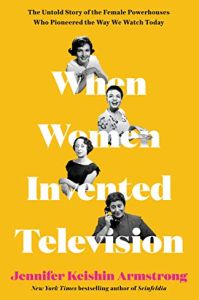Join getAbstract to access the summary!

Join getAbstract to access the summary!
Jennifer Keishin Armstrong
When Women Invented Television
The Untold Story of the Female Powerhouses Who Pioneered the Way We Watch Today
Harper, 2021
What's inside?
Gertrude Berg, Irna Phillips, Hazel Scott and Betty White helped invent American television programming.
Recommendation
When you think of TV’s infancy, you may not think of Gertrude Berg, Irna Phillips, Hazel Scott or even Betty White though she enjoyed TV’s longest career. You might presume that 1950s “mad men” created today’s formats, from talk shows to news hours, but those came later, with less colorful, more patriarchal content. At first, no one knew what to do with the medium, but these women saw its potential and built their careers. They worked for local stations, national brands and upstart networks, creating soaps and sitcoms and ad-libbing for hours. Jennifer Keishin Armstrong weaves their stories together episodically, one cliff-hanger at a time, to portray the mostly unsung women who helped invent TV viewing as we know it.
Summary
About the Author
A former staff journalist for Entertainment Weekly, Jennifer Keishin Armstrong wrote Seinfeldia: How a Show About Nothing Changed Everything; Mary and Lou and Rhoda and Ted: And all the Brilliant Minds Who Made The Mary Tyler Moore Show a Classic; and Sex and the City and Us: How Four Single Women Changed the Way We Think, Live, and Love.



















Comment on this summary